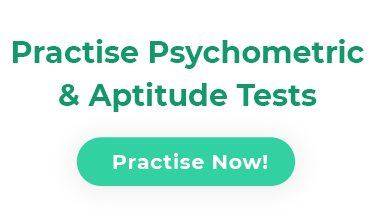Police Situational Judgement Test (SJT) Preparation – 2025

Many police forces in the UK require job candidates to complete a situational judgement test (SJT). These tests are an effective way to assess decision making skills and other traits that successful police officers have.
Most police agencies require a specific score on the SJT to progress to the next stage of the hiring process.
What Is the Police Situational Judgement Test?
Different forces and constabularies use different SJTs. For example, the College of Policing in England and Wales requires special constables to take an SJT that is 65 minutes long and has 50 questions.
Sometimes an SJT is one component of a more extensive exam. The Police Service of Northern Ireland’s Initial Selection Test includes one situational judgement section.
The specific test you will complete may vary, but the format is always similar. Each question describes a scenario. The scenarios are usually realistic and based on situations that police officers face on the job.
You have four options to choose from that describe potential responses. Your task is to determine the best one. On some tests, you need to identify the best and worst response or rank all the responses from best to worst.
As an example, many tests ask you to divide the options into these categories:
- Efficient: the most productive and reliable response, likely to lead to a good outcome
- Fairly efficient: this response would probably help improve the situation but is not ideal
- Inefficient: this response does not resolve the problem and does not make the situation better or worse
- Counterproductive: this response would actively make the situation worse
SJTs are usually timed. This is a purposeful tactic to make sure you don’t have time to deliberate too much over your responses. You may find that several of the questions are similar. Or, there might be two questions that seem to be asking the same thing using different wording. This is also on purpose and is a method of ensuring honesty. If your answers are not consistent, it may be a red flag.
How to Prepare for the Police Situational Judgement Test?
Police forces use SJTs to determine how well you adhere to their core competencies. Research the desired competencies for the force with which you’re applying. Examples include:
- Teamwork
- Professionalism
- Openness to change
- Serving the public
- Service delivery
Keep these traits in mind as you prepare for the SJT, and as you complete it.
It may feel tricky to prepare for an SJT since the answers are somewhat based on intuition and your inherent traits. It’s true that you should answer honestly based on your beliefs. However, online practice SJTs will help you get comfortable with the format and know what to expect.
Look for a practice test that explains the reasoning behind the answers so you can learn from any mistakes.
You can look for practice SJTs that are specifically designed for aspiring police, but any variety of SJT will be helpful. The questions should get you thinking about how you would respond to different situations.
If you can, confirm ahead of time the specific SJT you will take. This will help you since some tests require you answer much faster than others. One common entry-level police SJT requires you to answer 50 questions in only 25 minutes. Knowing this, you can practice answering faster.
Situational judgement tests are usually given relatively early in the recruitment process. They help weed out unsuitable candidates. To progress to the next step on the path to an exciting new job, you’ll need to pass your SJT. Appropriate preparation will significantly improve your chances.

